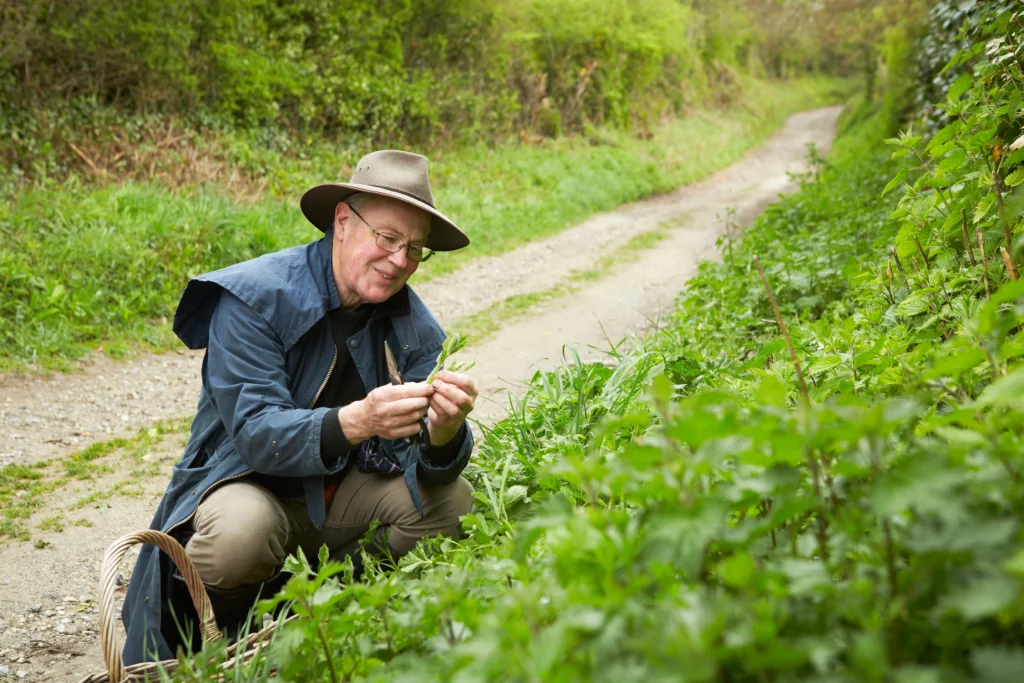Introduction
What is a botanist, exactly? A botanist studies plants, from microscopic algae to tall trees. Their research examines plant morphology, physiology, genetics, and behavior to understand the world better. Botany has been important throughout human history, as early civilizations employed plants for food, medicine, and shelter. Botanists maintain this tradition by studying plant biology and finding new applications in agriculture, healthcare, environmental conservation, and space exploration.
All life on Earth depends on plants. Hence, botany is crucial. They give oxygen, build the food chain, and shelter numerous species. Botany teaches scientists how plants grow, interact with the environment, and adapt to climate change. Strategies to increase food security, biodiversity, and environmental challenges like deforestation and soil degradation require this information. Botanists develop new pharmaceutical chemicals from plants, crucial to modern medicine.
Botany significantly affects daily life. From food to oxygen, plants touch every element of human life. Botanical research improves agriculture, creates new plant-based goods, and finds cleaner energy sources. Botanists help us understand plants and solve problems like food shortages, environmental deterioration, and the demand for renewable energy.
Roles and Responsibilities of a Botanist
Botanists study plants and have many different jobs and duties related to them. Their work is essential for figuring out how plants grow, how they connect with their surroundings, and how people can use plants. Some of the most important things a gardener has to do are:
- Studying plant structure, growth, reproduction, and diseases: Botanists study plant anatomy and physiology, from cellular processes to large-scale organization. This includes studying plant reproduction, water and nutrient absorption, and disease and insect defense. Botanists also boost food yields, produce pest-resistant plants, and protect forests and ecosystems through research.
- Analyzing the environmental impact on plant species: Botanists pioneer studies on how pollution, habitat loss, and climate change affect plant populations. They track plant species and ecosystem changes to design mitigation methods. They may examine how plants react to carbon dioxide or how deforestation affects rainforest biodiversity.
- Researching plant genetics and evolution: The genetic study helps botanists comprehend plant evolution and adaptation. This study can produce drought-resistant crops or plants with improved nutrition. Understanding genetic diversity and protecting endangered plant species is possible through botany genetic research.
- Contribution to conservation efforts: Botanists study and protect endangered plant species, which is crucial to conservation. They discover endangered plants, establish conservation methods, and engage with groups to protect ecosystems. Their work protects biodiversity, vital to the world and future generations.
Botanists work with ecologists, agronomists, and environmentalists to ensure practical uses. They help us understand and preserve plant life by protecting endangered species or feeding a rising population.
Specializations in Botany
Botany is a broad field that studies a lot of different things. Because of this, a lot of botanists choose to focus on one area of plant science. In the field of botany, these are some of the most popular areas of specialization:
- Plant Ecology: This field of botany studies plant-environment connections. Plant ecologists examine how plants interact with animals, fungi, and bacteria and how they respond to light, temperature, and soil quality. Conservation scientists need plant ecology to understand ecosystems and how to protect them.
- Plant Genetics: Plant geneticists examine plants’ DNA to understand how they inherit features and evolve. This expertise helps agricultural researchers develop disease-, pest-, and environmental-resistant plants. Plant genetics have also made possible GMOs, which boost yields and nutrition.
- Ethnobotany: Ethnobotanists study traditional knowledge regarding medicinal, nutritional, and ceremonial plant usage. This field is useful for developing novel medicines because many pharmaceutical components come from traditional healing herbs. Ethnobotanists also help indigenous tribes preserve plant knowledge.
- Horticulture: Horticulturists are experts in growing and caring for plants, especially in farming, gardens, and gardening settings. This specialty includes many subjects, such as growing plants, caring for soil, and creating environmentally friendly gardening. Horticulturists are very important for increasing food output and creating farmers who use sustainable methods.
Botanists who focus on one of these areas work in the field and the lab. They do experiments, gather information, and write about what they find in scientific papers.
Educational Path to Becoming a Botanist
To become a botanist, you need to follow a structured path of study that focuses on biological sciences. People who want to become botanists need to learn much about plant biology, chemistry, and the climate. Here is a thorough look at the most critical steps you need to take in school to become a botany professional:
Relevant Degrees
To become a botanist, you must first get a degree in the field. Here is a list of each degree level and how it helps a botanist move up in their career:
- Bachelor’s Degree: Entry-level botany jobs require a bachelor’s degree in botany, biology, or a related discipline. This four-year undergraduate curriculum teaches basic plant biology, genetics, ecology, and chemistry courses. Additionally, lab work and introductory field studies give students practical experience. Laboratory assistants, environmental consultants, and horticulturists need only a bachelor’s degree.
- Master’s Degree: Graduate degrees are frequently necessary for research, teaching, and specialty botany positions. This degree usually takes two years after the bachelor’s and lets students specialize in plant genetics, ecology, or conservation biology. Professors or research organizations may work with master’s students on more in-depth research projects. Master’s degree holders can work as research assistants, environmental analysts, and consultants.
- Ph.D. (Doctor of Philosophy): Academic and high-level research positions require a Ph.D. After a master’s degree, this advanced degree requires original research, publishing papers, and defending a dissertation and takes three to five years. Botanists with Ph. D.s can teach, direct research teams, or be the main scientists in government or commercial institutions.
Essential Subjects to Study
A thorough understanding of several essential science fields is necessary for studying botany, an interdisciplinary field. If you want to become a botanist, you need to pay attention to these critical subjects:
- Biology: Because botany is a part of biology, you need to know a lot about it. Courses in plant biology, microbiology, and genetics are all part of this. Botanists need to know much about plant chemistry and anatomy to grasp the complicated processes that control plant life fully.
- Chemistry: Botanists need to know a lot about chemistry, especially when it comes to plant biology, photosynthesis, and soil chemistry. Biochemistry and organic chemistry classes teach students how plants use and react with chemicals in their surroundings, how they make energy, and how they take in nutrients from the dirt.
- Ecology: Ecology studies how living things connect with their surroundings; botanists need to know much about it. Botanists take courses in ecology to learn about plants, biodiversity, and how things in the world, like climate change, affect plant populations. This knowledge is very important for conservation efforts and habitat restoration projects.
Scientific information and critical thinking abilities are taught in these disciplines for botany careers. They also learn to solve plant biology and environmental conservation problems.
Skills Required for a Successful Botanist
A competent botanist needs scientific knowledge, practical abilities, and the ability to explain discoveries. Careers in botany demand abilities like:
- Analytical and research skills: Botanists must be able to collect, sort, and understand data from their studies. This means using scientific methods to test hypotheses, drawing conclusions based on data, and ensuring that their conclusions are correct.
- Knowledge of lab equipment and fieldwork techniques: Botanists examine plants with microscopes, DNA sequencing devices, and spectrometers. Fieldwork involves safe and effective plant sample collection, environmental surveys, and population monitoring.
- Critical thinking and problem-solving: As part of their job, botanists often have to figure out complex problems, like how to treat plant diseases or raise food yields. To come up with new ideas and move the field of botany forward, you need to be able to solve problems well.
- Communication skills: Botanists must convey their findings clearly while speaking at scientific conferences, publishing in academic publications, or working with other scientists. Sharing research with the public and scientific community requires good writing and presenting skills.
Career Opportunities for Botanists
There are many job possibilities for botanists in many fields, such as:
- Research institutions and universities: A lot of botanists work in universities, where they teach the next generation of scientists and study plant biology. Academic botanists often share their results in scientific journals and work with other researchers who study similar topics.
- Environmental conservation organizations: Botanists are important in protecting the environment because they work to save endangered species, fix habitats, and fight climate change. Their knowledge is also crucial for devising plans to protect biodiversity and keep the world healthy.
- Agricultural and horticultural industries: Botanists establish sustainable agricultural techniques, increase food yields, and create pest- and disease-resistant plant varieties. Their research addresses global food security issues and ensures environmentally and economically viable farming.
- Government agencies: Botanists might work for groups that manage the environment, farmland, or forests. In these jobs, they help make rules and policies about protecting plants, managing land, and reducing the effects of climate change.
Conclusion
In agriculture, health, and environmental conservation, botanists help us understand nature. Botanists research plant life to protect ecosystems, create innovative plant-based products and address global issues like food security and climate change. A botanist job may suit you if you love plants and want to change the world.


